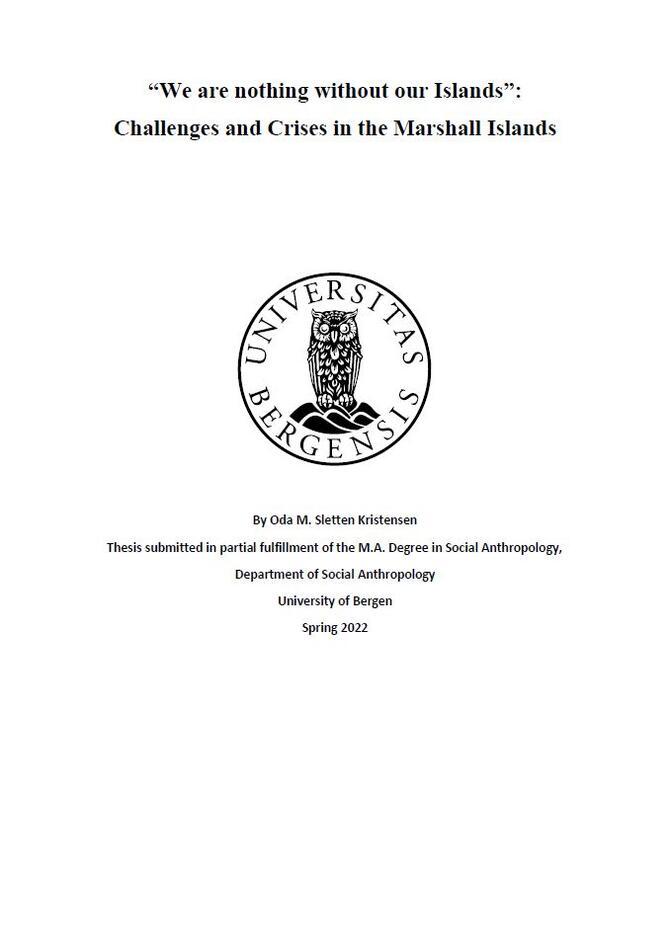“We are nothing without our Islands”: Challenges and Crises in the Marshall Islands
Hovedinnhold
Master's thesis submitted at Department of Social Anthropologi, spring 2022.
By: Oda M. Sletten Kristensen
Supervisor: Professor Edvard Hviding
This thesis explores the themes of challenges and crises in the Marshall Islands. Through ethnographic data based on participant observation primarily in Majuro, the Republic of the Marshall Islands (RMI), I study how significant changes are contextualized into Marshallese narratives. I also draw on extended ethnography from the Marshall Islands and the Pacific region. The history of the Marshall Islands is characterized by significant changes due to colonialization, militarization, and climate change. In Marshallese narratives, people tend to connect their existence in the present to past events that have affected increased change in Marshallese manit (culture). The past is not the only concern in Marshallese narratives because of the increased global climate change; Marshall islanders also consider the future in narratives about their existence. Based on this, the thesis explores the past, present, and future through a historical account, which includes several perspectives on historical processes in the islands, including the study of history as sequences of events and as social and cultural transitions. Based on my observations from Majuro, I explore the material landscape as an ongoing process of ruination based on the historical processes that I argue continue to unfold in the Marshall Islands. The thesis explores how the Marshallese are deeply connected through their relationship with the land which is also considered the most essential part of their existence. In the 1940s and the 1950s, the U.S. government used the Marshall Islands as a nuclear weapons testing site which caused severe consequences. People and land were contaminated by radiation from the tests, and islands were vaporized. The U.S. government forcefully relocated several communities off their islands, and people continue to live in permanent exile from their homes due to radiation contamination. In the cleanup of the nuclear era, atomic waste was collected and covered by a dome on one of the islands in the RMI. As we await the anticipated effects of climate change, the rising sea is threatening the concrete of the dome and the leaking of atomic waste into the sea. The RMI government have announced a national climate crisis because of the threats climate change poses to their islands, and based on continuous historical processes, I demonstrate how the Marshallese existence is significantly threatened by past challenges and crises. I argue that this backdrop is significant to the Marshallese fight for nuclear justice, and against climate change, and eventually for their entire existence. Through Marshallese narratives about challenges and crises in storytelling and activism, the Marshall Islanders intend to protect their existence in the world by fighting for nuclear justice and against climate change.
